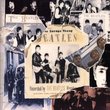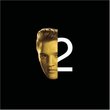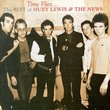| All Artists: Connie Francis Title: The Best of Connie Francis: 20th Century Masters - The Millennium Collection Members Wishing: 0 Total Copies: 0 Label: Polydor / Umgd Original Release Date: 11/2/1999 Release Date: 11/2/1999 Album Type: Original recording remastered Genres: Pop, Rock, Broadway & Vocalists Styles: Easy Listening, Oldies, Vocal Pop, Oldies & Retro, Traditional Vocal Pop Number of Discs: 1 SwapaCD Credits: 1 UPC: 731454789820 |
Search - Connie Francis :: The Best of Connie Francis: 20th Century Masters - The Millennium Collection
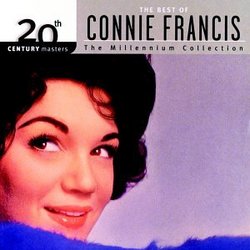 | Connie Francis The Best of Connie Francis: 20th Century Masters - The Millennium Collection Genres: Pop, Rock, Broadway & Vocalists
|
Larger Image |
CD DetailsSimilar CDs
Similarly Requested CDs
|
CD ReviewsSaint Francis. F. Gentile | Lake Worth, Florida, United States | 11/14/2005 (5 out of 5 stars) "Connie Francis was the Maria Callas of Pop music. Her incredible popularity in the 1950's and early 1960's was unmatched.... she was the girl every father wanted for a daughter and every boy wanted for his girl. Her singular, sing-songy, heartbreaking voice was very similar to that of the great Patsy Cline's, partly in fact that not only did they both have that little "cry" in their voice, that almost no one can do successfully, but also in that they could take pretty much any material, no matter how minor, and make it good, sometimes great. But fame and popularity are usually followed by heartache, and Connie Francis' career was no exception. It was dominated and controlled, we later learned, by her domineering and controlling father, who made her every career decision, based on what he and the industry perceived to be her good-girl image. He famously kept a hawk-like watch on his precious commodity/daughter, including destroying the relationship with the person that she always referred to as the love of her life, Bobby Darin. Her career waned in the 1960's, due mostly to changing musical tastes, but she had forever carved out a solid niche as one of the most popular girl singers of the 20th century. She continued to perform in public, mostly in smaller venues. It was while appearing in such a place, in Westbury, New York, that the now famous, very violent sexual assault occurred , forever changing her life. The great career, and, apparently, the great voice had ended. Bad marriages and bad business decisions followed, along with family tragedies. She retreated from public life, save for the occasional tabloid intrusion. Further publicity surrounded not only her lawsuit against The Westbury, where her assault occurred, but that the trauma of that event had caused her to permanently lose her voice. Her behavior was reported to be increasingly erratic. She further withdrew. She did not reappear for years, until she authored her auto-biography, where many of the facts from her pained past came to light. Anyone who saw her comeback on Dick Clark's show around this same period will never forget it. This girl that was so loved by so many had her voice back, and the audience reaction and the tears in Dick Clark's eyes were a natural, spontaneous, honest reaction to a totally unstaged, rare outpouring of genuine affection, that had more to do with sincere appreciation than in maybe the perfection or imperfection of her voice. About 10 years or so ago, a group of my friends and I saw that she was appearing in Ft.Lauderdale, so we thought we'd have a laugh and go see her, it'd be fun in a campy kind of way....very "Where The Boys Are." Well, any preconceived thoughts about the reasons why we were attending quickly gave way to awe at the way this lady had this audience in the palm of her hand from the moment she swept onstage. It wasn't a performance...she was there amongst friends that she knew loved and admired her. When she introduced her mother to the audience from the front row, then proceeded to sing one of her greatest hits, "Mama", directly to her in a voice that reached the heavens, well....there was not a closed jaw nor dry eye in the house, and the standing ovation that sprung up on the last incredible notes was only a reflex to true greatness. I have had very few moments like this in live performing, and I've seen alot of them. This is the kind of reaction and loyalty Connie Francis elicits, due not only in that she represents nostalgia for an increasingly bygone time and innocence, but that her natural talent and beautiful voice brought joy to so many, from grandmothers to teens to the troups in VietNam. This 20th Century Masters Collection is a good place not only to reacquaint yourself to the voice and songs that will undoubtedly bring a big smile to your face and a tear to your eye, but also for those not acquainted with this voice that was such a big part of Pop music , and allows her to remain one of the biggest selling female artists of all time. Though Connie Francis leads a very private life, and has been out of the spotlight for many years, her inherent dignity and musical legacy will always insure a big spot in the hearts of those millions that her music touched. God Bless you Dear Lady, and thanks for all the joy." Greatly abbreviated best-of collection hyperbolium | Earth, USA | 05/20/2000 (3 out of 5 stars) "Though one can't fault the tracks that are included here, it's disappointing to find this collection seems to have replaced the splendid "The Very Best of Connie Francis, Vol. 1." Given that the original 1963 "Very Best of" had 15 tracks, and the CD reissue had *21*, the 12 titles on this disc are a paltry offering.There are quite a few top-40 hits missing, including the truly stellar Sedaka/Greenfield penned "Fallin'," the torchy "You're Gonna Miss Me," Paul Anka's "Teddy," and the title tune from 1963's "Follow the Boys."This current release may be easier to buy (and have a better booklet), but a used copy of "The Very Best Of, Vol. 1" is the better spin." A voice of the century Jay Dickson | Portland, OR | 11/01/2001 (4 out of 5 stars) "The worst tragedy of Connie Francis's is that her lifetime's calamities have come to overshadow her fine music for many among the general public. Hers is a grand and powerful voice to be matched with Patsy Cline's: the sound is true, the self-harmonizing is beautiful, and the songs that made her famous (many of which were old Tin Pan Alley standards which were old-fashioned even in her heyday) hold up beautifully over the years. This is not an album for a Connie Francis aficionado but for someone more casually interested in becoming familiar with her work. The classics are all here, from such sentimental favorites as "Who's Sorry now?" and "Breakin' in a Brand New Broken Heart" to such rockers as "Stupid Cupid." Bravissima Connie!"
|

 Track Listings (12) - Disc #1
Track Listings (12) - Disc #1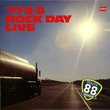
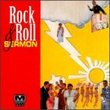


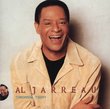
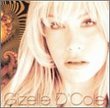
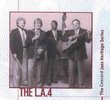
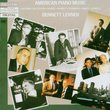
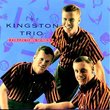
![The Rock N' Roll Era: 1960 [Time Life]](https://nationalbookswap.com/cd//m/04/7904/13247904.jpg)




